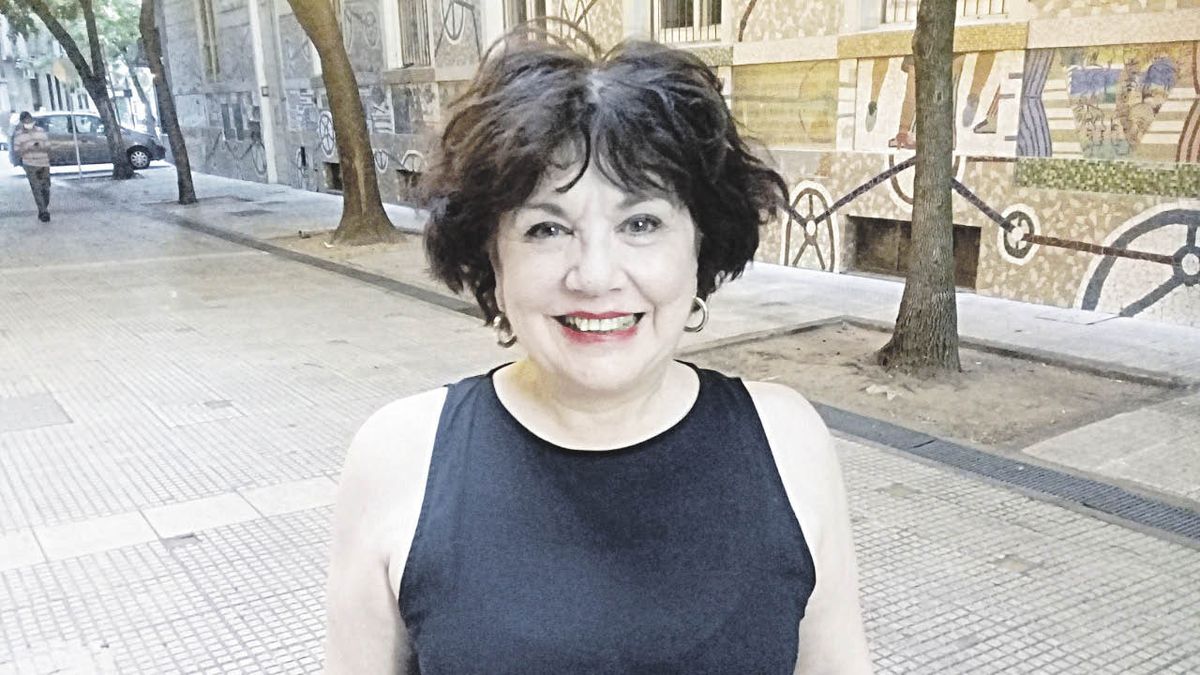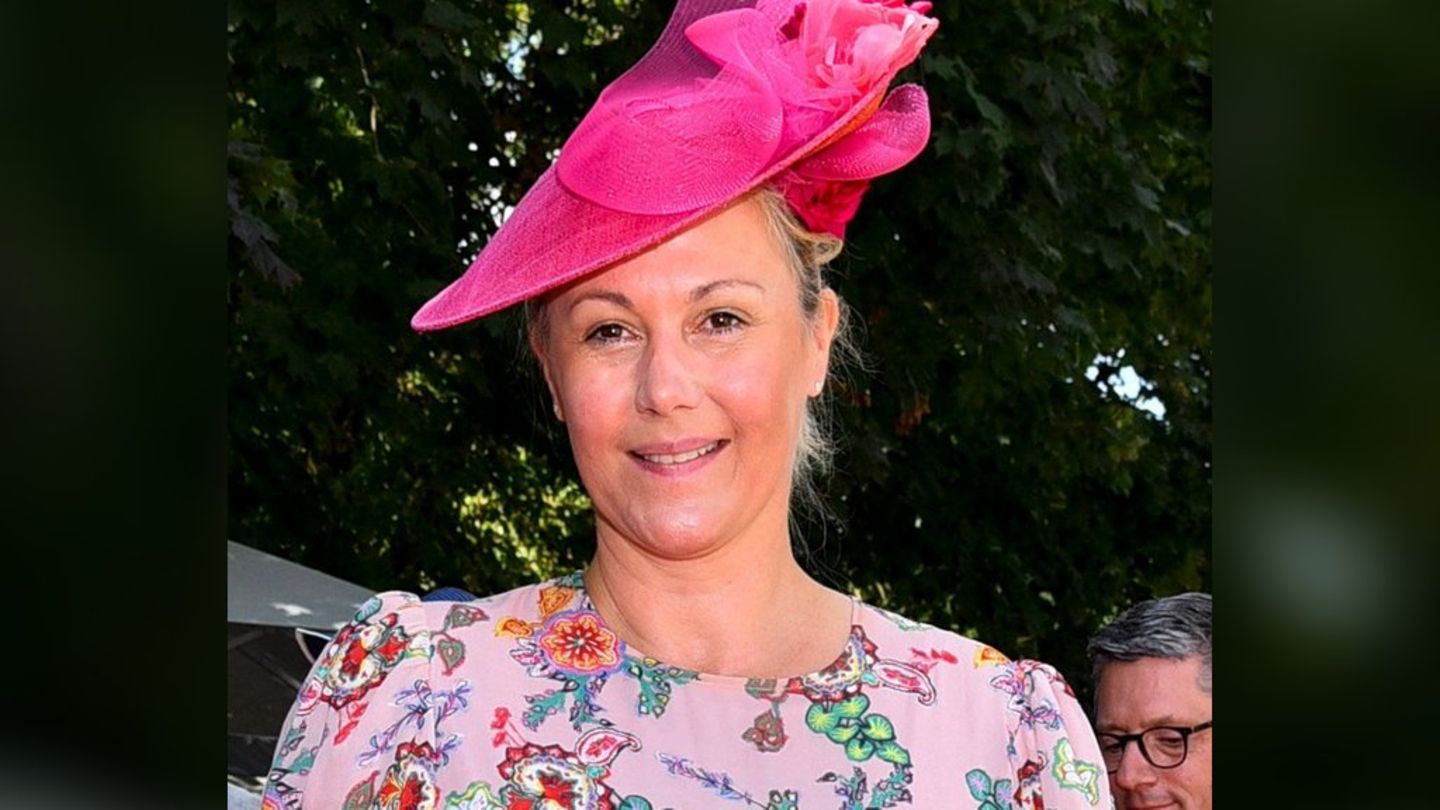Rita Terranova: The strike is in the background, that is the surprise, but we want to tell stories of unprotected and endearing beings. There is a milkman’s helper, a babysitter, kitchen assistants, waiters who work in the cafe, maids and servants, they all meet in a square and want the conchabos book to be annulled. But in addition to the historical context there are the loves, the sadness, and there are different genres. I was wondering how a story is told today where there are immigrants from the 19th century, and I do it with all theatrical styles. It was an Argentina where those who carried out the moves for the poor were the anarchists and socialists, it was what there was at that time, an illiterate people, without penicillin and deaths from yellow fever.
Patricia Suarez: Rita wanted to write about a popular Argentine event and this was a strike prior to the labor movement. Due to the context of the pandemic, I thought of it so that it could be staged as a work outdoors and I think it is more difficult to put it on a stage than in a square, but Rita worked hard for that. Searching for topics, I came across this conchabo notebook that of course does not exist today, but the request for references is in force. I think it was as controversial as asking for the vaccination booklet and I am not anti-vaunas, I have 4 applied. The point is that the strike affected the upper class so much, the ladies who did not have their maids and those who wanted to go to bars and restaurants, that from a newspaper they asked the mayor to leave the notebook out of circulation so as not to inconvenience the the oligarchy.
Q.: What theatrical genres make up the work?
R.T.: I like theater to narrate in a theatrical way, so there is music, choreography, something of the theater within the theater, breaking the fourth wall, related to Marat Sade by Weiss or also Brecht. It is the theater that nurtured me. I started in the ’70s and changed, first I only did Chekhov, then clown comedies, classics like Goldoni, Moliere or Shakespeare, and other more popular things. It is what I absorbed and I like to transmit. There is no need to have prejudices with the theater, historically everything was divided, I remember my first contract on Channel 9 when I was 18 years old for ‘Love has a woman’s face’. A teacher crossed me in the corridor of the channel and told me to run away from the TV, to be careful. He was also on TV but of course, he was doing a classical music program.
Q.: I spoke before of an Argentina with poor people, illiterate people and yellow fever. How much does it differ from the current pandemic?
R.T.: Maybe that’s why we thought of doing the work, with a pandemic and immigrants who live overcrowded and get infected. We tell the story with an old-fashioned style and current aesthetics. I asked Patricia to write about it and then when I direct, I arrange the works. I even added a lot of characters. She let me do whatever I wanted, and when we entered the CTBA contest, I honestly thought we weren’t going to be chosen. We are two ladies and there is theater that is very young. I thought they would be with more avant-garde things. And I went to the first one they called. Telerman told me how beautiful the play was, that it had been fun, that it had a lot of detail and 14 actors on stage. One of the values of independent theater was the number of happy people working for a play, they were not one, two or three like now, they were always massive casts. I told the actors that we were not going to win much but that we were going to have a wonderful time. I like shows with many people, holidays.
Q.: Do you feel that theater belongs to young people and is only avant-garde?
R.T.: I see that the official and the independent do not differ much. I see the same actors, aesthetics and themes. Tantanian and Blutrach’s Cervantes was like that, and it caught my attention because it had to be very comprehensive and unprejudiced. In this sense, San Martín has more variety.
P.S.: Today’s theater is decimated, the pandemic left no one unharmed. We were expecting a summer of pure comedy, from the silliest to the most thoughtful, but the omicron is wreaking havoc and even though we know it’s a small flu, nobody feels like it. People wanted to have a lot of fun after the pandemic and I feel that tragedies and social dramas will come later, which is what fascinates our independent theater, thinking in order to articulate a reality different from our past.
Q.: They talked about the independent and the official, and the commercial?
P.S.: They move by themselves, it’s like another galaxy. And I return to the Buenos Aires independent, which I love because you can tell anything, you can do everything because there is nothing politically incorrect, you will have to bank criticism or lose money, but there is freedom and a great wealth of topics. And the official, presents a program that comes from 2019, so it is difficult to have a place. I liked an official like Rubens Correa’s and now Gladys Contreras has arrived, with a super head in programming to move the theater, but she carries the backpack of what was not done in the pandemic.
Source From: Ambito
David William is a talented author who has made a name for himself in the world of writing. He is a professional author who writes on a wide range of topics, from general interest to opinion news. David is currently working as a writer at 24 hours worlds where he brings his unique perspective and in-depth research to his articles, making them both informative and engaging.




